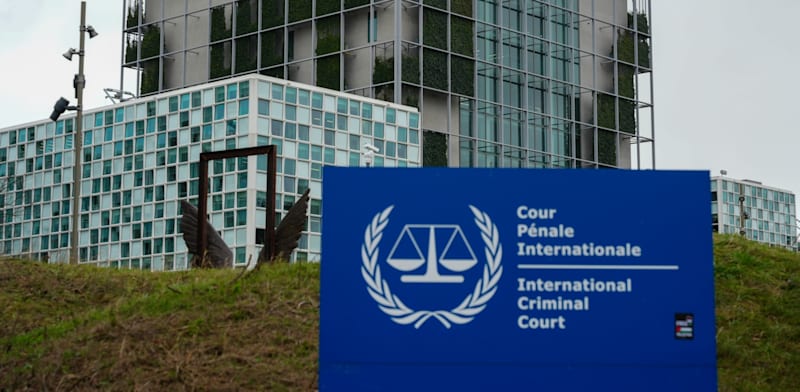Yesterday (Thursday) was a sad day, and perhaps even destructive, for Israel’s relations with IsraelEurope. One by one, the countries of the continent announced their commitment to the Treaty of Rome under which it operates International Criminal Courtand that they will respect the decision to issue arrest warrants against the Prime Minister of Israel Benjamin Netanyahu and the former Minister of Defense Yoav Galantif they reach their territory. After more than a year of war in Gaza, and after Israel’s friends on the continent dwindled, all of Europe had to choose a side. As expected, due to the fact that international law is the basis for the European Union and order on the continent after World War II, she did not choose the Israeli side.
The slight nuances in the countries’ announcements do not change much. France, Belgium andNetherlands They rushed to clarify minutes after the decision that they would respect the orders. “We comply with the Rome Convention 100%” said the Dutch foreign minister, the country that hosts the International Criminal Court. onIrelanda country leading an anti-Israeli policy bEuropean Unionthe prime minister hastened to call on “everyone who can assist the ICC in carrying out its vital work to do so urgently”. Joseph Borrell, who is responsible for foreign policy in the European Union, reminded the EU members that “the decisions of the court are binding on all members”.
Italy initially broadcast diplomatic moderation. “We support the International Criminal Court, while remembering that it should play a legal and not a political role,” said the foreign minister, adding that the Italian government “is studying the decision and will evaluate together with our allies what to do and how to interpret it.” Minutes later, however, the Italian Minister of Defense clarified that Gallant and Netanyahu would be arrested if they arrived on Italian soil. “If they come here, we will have to stop them,” he said.
only bHungarya country that last May threatened to withdraw from the International Criminal Court and promised not to honor arrest warrants against Israeli leaders, the Prime Minister announced this morning that the two leaders are invited to visit and that they will be protected by the authorities. onGermanyone of Israel’s main friendships in the world and the one who dropped respectable weight in the treatment of the whole of Europe in favor of Israel, remained silent for almost a day. In the past, the government spokesman promised to follow the arrest warrants. In a press briefing this morning, he avoided the question of whether Netanyahu would be welcomed in Germany, saying that the authorities are “studying the decision” and that decisions will only be made “if a visit by Netanyahu is on the agenda.” He shared a bit of the great German dilemma, as a founder and supporter of the Criminal Court, but also as a country that “has a special responsibility” for the fate of the State of Israel.
The reality has changed
All these responses, carefully worded, do not hide the new reality. The Hague Tribunal has driven a significant wedge in relations between Israel and Europe. He painted the entire past year with sweeping illegitimacy, he turned the war in Gaza into a series of war crimes and the top brass of the State of Israel into the one who led a policy of starvation, mass murder, causing suffering and a host of other crimes.
The fact that it is a “reasonable basis for suspicion” or any other disclaimer were lost. The fact that at this stage there are “only” two orders against the Prime Minister and the Minister of Defense is also important. According to the press release, the responsibility easily extends to other government ministries and other ministers, and many more levels.
Beyond the immediate consequences in terms of arms exports and the movement restrictions of the Israeli elite, the announcement is a depth bomb that could affect all relations. How can we now talk about shared values between Europe and Israel, when it is clear that there are such significant differences of opinion regarding the rule of law? How can we talk about common lessons from the Holocaust, for example, when those who talk about it face arrest if they do so on European soil? How is it possible to convene legal symposia, academic discussions, develop trade relations, when such a chasm has been opened between the parties? One side undertakes to put the Prime Minister of Israel behind bars if he comes to its territory, another side believes that the war in Gaza was a necessity and that Israel has the tools to deal with violations of the law independently.
How can you continue to manage relationships like this? Perhaps you will find a formula, time will tell, but the basis of the relationship has been dropped, the rapprochement of recent years is evaporating, the separatist camp in Israel is getting stronger and the distance between Israel and Europe is growing. The first sounds of what sounds like a requiem for a relationship are already in the air.
For your attention: The Globes system strives for a diverse, relevant and respectful discourse in accordance with the code of ethics that appears in the trust report according to which we operate. Expressions of violence, racism, incitement or any other inappropriate discourse are filtered out automatically and will not be published on the site.
